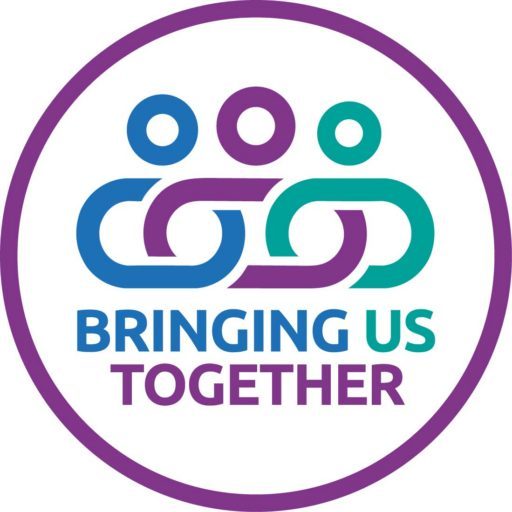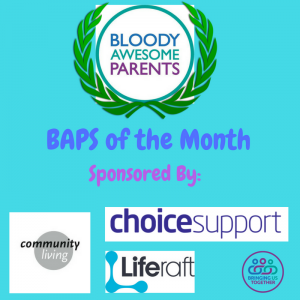One Page Profiles – A Round Up #1PPin2015
We have spent the last few weeks looking at One Page Profiles and breaking down each section for you. Today, we wanted to bring you a round up of each category from Beth Shaldrake at Helen Sanderson Associates. Beth has kindly been providing us with the videos we have used in our previous posts.
 Appreciation – What do people like and admire about?
Appreciation – What do people like and admire about?
Sometimes it can feel as if those around us focus too much on the negative, the problem or the difficulties faced by our children. It can make a refreshing change and have an uplifting effect to ask the simple question, ‘What do you like and admire about my child?’
I have sat with many parents and teachers and observed the whole mood and direction of a meeting change when that question has been asked. Faces brighten and outpourings of positive observations and experiences are shared about the child. I have seen children physically grow and glow with pleasure when they have been told what their parents, teachers and friends love about them. This is great for a child’s sense of wellbeing and self-esteem, plus it can also give others a rich picture of who the child is. Appreciations go straight past any problems, labels and diagnoses – it helps to begin the process of describing the whole child.
It’s great to begin a meeting that you may have in the school setting with appreciations and I’d recommend you make a written record of what is said – it’s not only lovely for you as a parent to keep but you can also share them with your child and add them to your child’s one page profile. I was once privileged to observe a teenage boy listening to his teachers sharing what they liked and admired about him, this resulted in a huge change to this young man’s confidence and sense of belonging in the school.
Appreciations can be gathered in lots of ways, what I would suggest is that you ask several different people who know your child and aim to get about 5 strong statements to go on your child’s profile. By strong statements I mean avoid using words and phrases such as ‘generally’ ‘is sometimes’ ‘can be’ ‘often.’ If a person says you are ‘often caring’ it suggests that there are times when you are not caring. People to approach for appreciations may be family members, friends or professionals. Don’t be put off if someone’s initial reaction when asked the question is surprise – it’s probably because they’ve never been asked before. If you’d rather ask the person to write down their likes and admires then a great way to do this is using a postcard –HSA have some lovely ready-made ones- this makes a gorgeous keepsake and it gives the person time to think about what they like and admire about your child.
A small magnetic white board on your fridge or a chalk board on the wall can also be a great way to tell your child what makes you proud. It’s lovely for them to come down to in a morning, small messages can make a big difference to someone, such as, ‘I like the way you…’ or ‘you made me feel good about myself when you…’ or ‘I loved the way you tried so hard when…’ What you may notice is because you and others are capturing these positive things you become even more focussed and attentive to the qualities that your child has.
The process of gathering appreciations about your child for the profile can be a thoroughly enjoyable one for both you and your son or daughter. You’ll be glad you asked, ‘What do you like and admire about my child.’
 Important To
Important To
What’s the difference between important for and important to?
When I go into school settings I find that adults are great at identifying what is important for the children. Depending on the age and stage of the child, targets are usually written about learning and steps to independence. Examples might include; it’s important for Billy to learn his letter sounds, or it’s important for Poppy to learn how to ask for help. As parents we’re also good at knowing what is best to keep our children safe and healthy. I know that it’s important for my children to not eat too many sweets, to have fruit and veg (that’s really hard some days!), to get enough sleep, to learn about staying safe, and the list goes on…In fact the more I think about it the more I realise that I have tons of things that I know are important for my children and they are all around health and safety, and learning. As I am so good at knowing what is important for my children, it’s easy to forget about finding out and focussing on what is important to them. The things that are important to us are the things that make us feel content, happy and fulfilled.
An example from home
Last night I knew that it was important for Alfie to have a bath and wash his hair; however, as those of you who have boys might know, this was not important to Alfie! What was important to Alfie was to finish the game he was playing on the computer. Through doing a one page profile with Alfie I had found out that it is important to him to be given chance to finish what he is doing and if I ask him to do something else he will do it, but not always immediately! So it’s about balance – I’m not going to say to Alfie, ‘Ok, having a bath isn’t important to you so you can stay dirty,’ however I have found out that it’s important to him to finish what he is doing, especially if he’s in the middle of a computer game as he can’t save it and that makes him feel frustrated.
How do we find out what is important to our children?
As parents we have a great insight and understanding into what makes our children happy and content, what helps to sooth them when they are upset, what certain behaviours are telling us, who they like to be with and what they enjoy doing. We often don’t realise how much information and knowledge about our children we carry with us as it comes naturally and instinctively. When doing a one page profile we need to communicate all that rich information, but we also need to keep checking it out with our children- have we got it right? Remember Guess, Ask, Write – make your best guess about what is important to your child, check it out with them and then write it in the profile.
Good Day/Bad Day
There are many ways to gather the information for this section, a great tool to start off with is Good Day/Bad Day. This involves gathering information about what makes a good day and what makes a bad day for your child. Then by exploring a bit further we can begin to understand what is important to them and learn how best to support them. A good day for my daughter Poppy would include going to the park, what is important to Poppy is that she spends some time every day outdoors, she loves to play outside and the best way to support her is to give her opportunities to go outside. This doesn’t need to be the park every day; it can be the garden or somewhere else where she can run around.
A top tip when doing this section is to be specific – add detail. For example, it is important to Alfie to have a story CD to listen to when he is going to sleep, at the moment he enjoys listening to the David Walliams stories. It’s important to Holly to see her friends outside of school at least once a week, I support her to do this by taking her to Brownies or having a friend over for tea. Holly especially enjoys having friends to our house for a sleepover.
Other ways to explore what is important to your child is to examine a typical week and find out whether there are any TV programmes that they never miss, who they spend time with, hobbies they enjoy and interests they have. The Fink cards have great questions to chat about, such as what is your favourite book, most treasured possession and best holiday? These can all help to give us a way in to explore what is important to our child. For example, when Poppy is tired, she likes to watch Peter Rabbit with her blanket over her and I support her by recording Peter Rabbit so it is always available!
Top Tips
To really understand the difference between important to and for us have a go yourself. You could do a good day bad day or simply list what is important for you and what is important to you – try to spot whether anyone supports you and how. For example, it’s important for me to go to the gym once a week, my husband supports me by looking after the children. It’s important to me to know that I have done a good job, my colleagues support me by telling me when I have done something well.
Be specific and add detail. Ask someone else to read through what you have drafted, does it make complete sense to them? Remember you know what you mean but other people may not. Imagine a new person picking up your child’s one page profile to find out how best to look after them for a day – is it clear? Do you feel you have communicated all the information needed in order for your child to have the best chance of having a good day? That’s what we are aiming for – more good days for our children and fewer bad ones.
 Important For
Important For
There is a big difference between important to and important for. We’re aiming for balance between the two and to identify how best to support our children. I find it helpful to begin with myself and think about what is important for me – it gets me thinking along the right lines before then focusing on my children.
It’s important for me to eat well – I often skip meals because I’m busy and then end up with a headache; sleep well – I often start watching something interesting on TV too late and then wonder why I’m so tired when the alarm goes off in the morning; get worries off my chest – small worries build up into big worries if I don’t talk them through with someone; say ‘No’ when things are hectic and I’ve got too much on or I end up getting stressed out and then I can’t do anything well!
So there’s a list of ‘ important for’ me – it’s all the things that relate to my health, safety and ability to a good job. I can be supported by some people in my life to achieve these important fors – my husband reminds me that I need my sleep and turns off the TV, he is also there to listen to my worries and talk things through. Colleagues are aware that I find it hard to say no and they don’t try to persuade me if I’ve managed to turn something down.
Our children all have things that are important for them and we’re often better at identifying these than we are at recognising the important to things. As a parent I seem to have inbuilt system that monitors fruit and veg intake in my children, which drives my son mad as he hates most green food! Ask yourself what preparations you would make if your child was going away for a day and night – what would you pack in their bag? What advice would give to the person looking after them? What’s the best way of supporting your child if they are upset? My top tips for anyone looking after my son include awareness of his heart condition and that it’s important for him to not do anything too strenuous. When my two old daughter, Poppy, goes to pre-school I know it’s important for her to be taken by her key worker straight away and for me to leave immediately or she gets very upset about the separation.
The information about what’s important for us goes in the How best to Support section of the One Page Profile. For example, Poppy’s key worker at Pre-school knows that it’s best to come and collect her from the front door and take her straight to her favourite toy – the dolls or play dough.
 Getting your One Page Profile into School
Getting your One Page Profile into School
So you’ve created a One Page Profile for your son or daughter – it’s full of detail and you’ve asked everyone who knows your child well to contribute. Then you take it to the school and hand it to the class teacher on the way in from the playground who gives it a brief glance before thanking you and putting it with a pile of other papers; dinner money, letters, homework…How do you feel? I’m guessing a little disappointed? Anxious? Down-hearted? Cross? One of my key things to remember when producing a One Page Profile is that the piece of paper is not the outcome – what happens as a result of the profile is. You can have the best One page profile in the world but if it’s put in a draw or a file and no action happens as a consequence then you may as well not have wasted your time.
Teachers are busy people and I’ve found the best way to introduce your child’s One page profile is to make a time to meet with the class teacher, SENCo and teaching assistant. It may be that you have an annual review meeting coming up or a parent’s evening; these would be ideal times to introduce the profile and spend time explaining it thoroughly.
Another great time to share the profile is at a transition point, whether that’s starting school or moving into the next year group. Teachers will love the opportunity to get a real insight into what makes good days for your child, it will give them chance to ensure all the necessary things are in place and how to ensure the best learning environment for your child from the very beginning.
Try to involve the school in the process of creating the profile as much as you can. If the teacher knows in advance what you are aiming for and they feel very much a part of the process then the responsibility to ensure it is acted on will be there from the beginning. If you feel able to, then meeting with the head teacher and other members of the senior management team to tell them about One page profiles and what they can do can be hugely beneficial. It is a great time in light of the new legislation to share knowledge of good practice around Person centred thinking and if a school understands and takes on the philosophies from the top then it stands a greater chance of becoming embedded throughout the school.
You can also help to spread the philosophy of Person Centred Thinking by demonstrating to the school staff what a powerful effect they can have. At the end of each term my children always give a small present and card to the key people in the school as a thanks; the children always put a short message of what they like and admire about that adult – it makes a Christmas card just that extra bit special.
How are you doing?
Take our quick poll and let us know if you have produced a One Page Profile or if you are doing it? It would be really great to see if our posts have been helpful or perhaps we haven’t given you exactly what you needed, so let us know by commenting below.
Don’t forget to subscribe to our updates if you wish to see more posts like this.
Mum to three great kids, each with a different SEN.
Transplanted from the NW to the SE.
Co-founder and Director of Bringing Us Together











